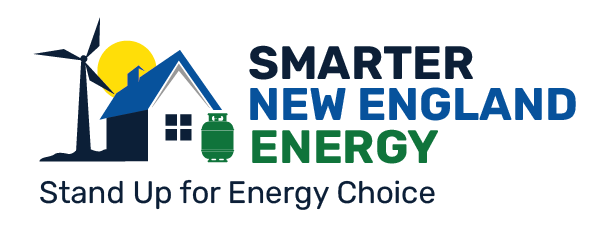Massachusetts Clean Heat Standard
The Massachusetts Clean Heat Standard (CHS) is a new climate policy from the Massachusetts Department of Environmental Protection (MassDEP) designed to reduce greenhouse gas (GHG) emissions from residential, commercial, and industrial heating.
Why Should You Be Worried About the Clean Heat Standard?
While the aim of the CHS to reduce emissions is desirable for all, the policy intends to do so through costly and inefficient massive, forced electrification throughout the state. It fails to consider propane as a sustainable energy solution that’s already here—that’s already clean, safe, and low-carbon, and it further seeks to impose substantial taxes on clean fuel-energy like propane.
These significant infrastructural changes from the CHS will profoundly impact many residents of Massachusetts, and especially those families who rely on propane to heat their homes. Families will be faced with exorbitant heating bills and limited heating options to aid in reducing costs.
Unless Massachusetts residents voice their opposition to the CHS as it is and fight to incentivize propane, MassDEP will implement the policy in the near future, but you can tell your state representatives that a decision of this magnitude should not be decided by MassDEP alone.
LEARN MORE ABOUT THE INCREASED COSTS OF THE CHSHow The Clean Heat Standard Works
The CHS is planned to be implemented by 2026. At that time, it will require heating fuel suppliers to meet emission reduction targets, setting a performance standard from which the additional costs for fuels will be incurred. It will “tax” fuel energy, but they are not calling it a tax. Using a system of “clean heat credits,” which are electronic records reporting compliance with the emissions standards, the CHS will force suppliers to acquire enough credits annually to offset their emissions. While these credits can be bought and sold, the additional costs of fuel will fall on the consumer.
The policy intends to require fuel suppliers to increase the number of clean heat sources they deliver to customers, effectively pushing a shift away from warm fuels without imposing “direct” emissions taxes. As the policy aims to encourage widespread electrification, availability of and support for propane will decrease steadily, and homeowners will have to remove or limit their fuel-based heating systems. This means they will need to purchase electric heating equipment, and after installation, families must submit an application through the Clean Heat and Emissions Tracking System to receive credits for their new systems.
LEARN MORE ABOUT HOW THE CHS RESTRICTS YOUR ENERGY CHOICEHow the Clean Heat Standard Will Affect Massachusetts Families
Families will face numerous burdens and difficulties with the implementation of the CHS. The concern about maintaining warmth and safety during the fall and winter months is significant.
With the state already relying heavily on fossil fuels and having some of the highest electricity costs in the United States, the Massachusetts electric grid is not strong enough to shoulder the burden of powering the entire state’s energy demand on its own. The grid has faced challenges in extremely cold temperatures, which are common in our state for several months out of the year. These factors suggest that the grid will not perform well when temperatures dip below freezing.
Additionally, families will be forced to purchase and install new electric heat pumps to meet policy mandates. Electric heat pumps can be extremely expensive to install, especially in older homes that may not have the structural build to support electric energy. With few qualified and licensed technicians in the state to complete electric installations and repairs, families will experience delays in compliance and in getting repairs when their heat goes out.
Lastly, implementation of the CHS would remove your access to propane as a backup power source, meaning you will be left in the cold if your electric equipment fails.
![]()
Take Action Against the Clean Heat Standard
Propane is a vital heating option for families and residents in Massachusetts. Let your local state officials know you want the Clean Heat Standard to incentivize propane.
